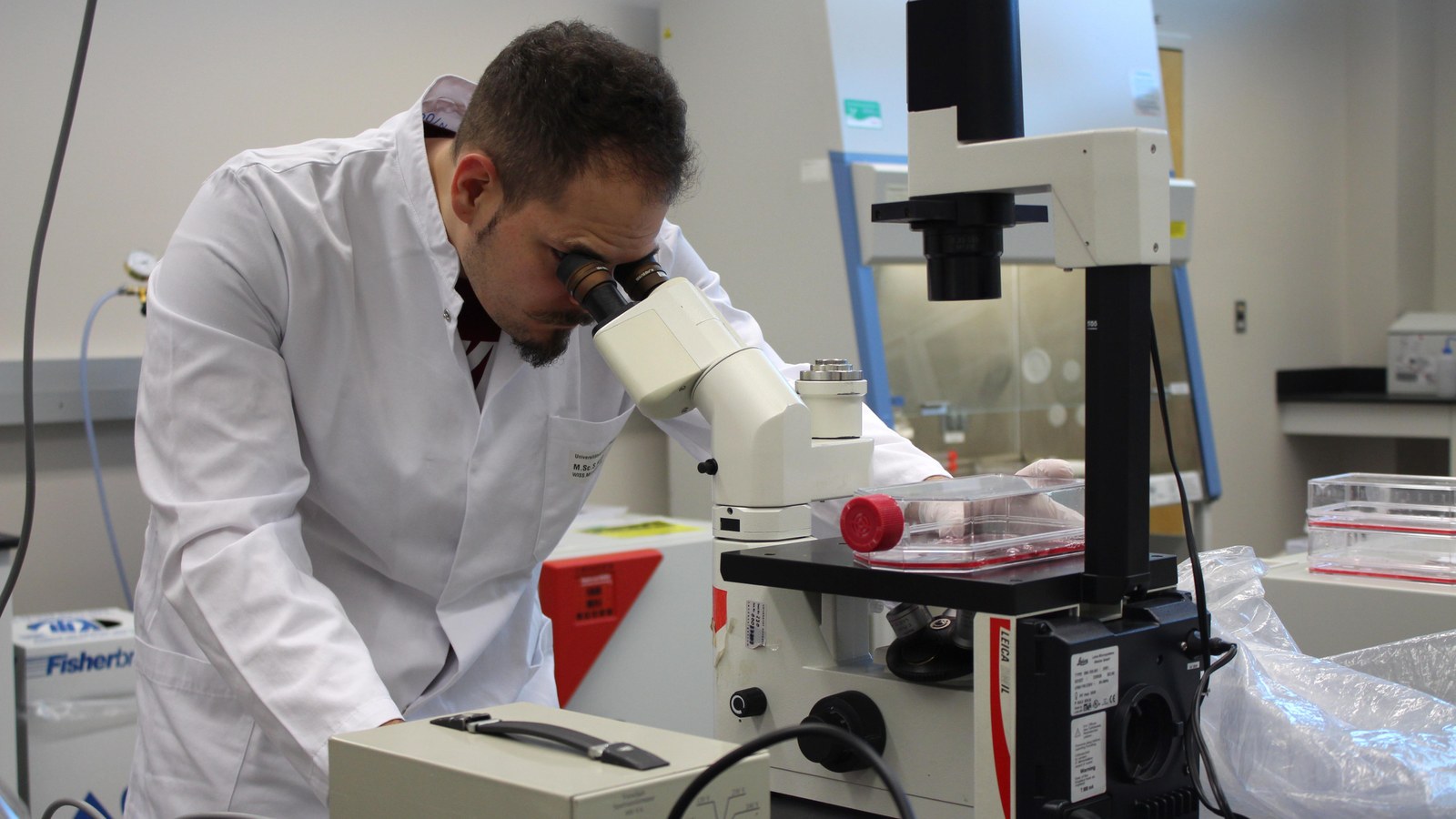Smart phone-sized experiments on the ISS


- On 15 December, three cell-culture experiments by German scientists were launched to the International Space Station (ISS) on board a Falcon 9 rocket.
- The smart-phone-sized experiment containers carry immune cells, neurons and cancer cells.
- The biological samples will remain in microgravity for 30 days and will be examined in the laboratory upon their return to earth.
On 15 December at 16:36 CET (10:36 local time), the US Dragon CRS 13 capsule was launched to the International Space Station (ISS) from Cape Canaveral (Florida) by a Falcon 9 rocket. On board were three cell-culture experiments by scientists at the Otto von Guericke University in Magdeburg and the University of Hohenheim, funded by the Space Administration of the German Aerospace Center (Deutsches Zentrum für Luft- und Raumfahrt; DLR). The biological samples will be installed in smart-phone-sized experiment containers in the STaARS 1 research facility in the Destiny module of the ISS. They will remain in microgravity for 30 days and return to Earth in the Dragon capsule in mid January 2018, when they will be examined in the laboratory.
What happens to the immune system in space?
The human immune system is weakened during prolonged stay in space. Preliminary tests on the ISS have shown that immune cell activity is affected by changes in gravity. However, the cellular and molecular mechanisms responsible for this are still not fully known. Macrophages are the immune system’s front line of defence. These scavenger cells, which are a type of white blood cell, are responsible for attacking and destroying bacteria and other pathogens in the human body.
Scientists suspect that the reason behind the immune system's impairment is a disturbance of the cytoskeleton – the flexible inner framework structure of a cell – in the macrophages or a reduction in molecules on the cell surface. Therefore, scientists at the University of Magdeburg aim to record long-term changes in the macrophages caused by microgravity. "Research under microgravity conditions over a prolonged period is only possible on the International Space Station," explains DLR Project manager Michael Becker. "In the long term, the acquired knowledge will help develop countermeasures and drugs against immunodeficiency disorders. These will not only be helpful for astronauts on long-term missions in space, but also for patients on Earth."
Cancer research in microgravity
The focus of the second experiment by cell biologists from Magdeburg is on investigating thyroid cancer cells. Previous experiments have shown that in microgravity special cancer cells form a spherical group of tumour cells, called three-dimensional multi-cellular spheroids. The effect of biochemical substances on spheroid growth, in particular, is best researched in microgravity, as gravitational forces are cancelled out under these conditions. The biochemical substances will be analysed at the scientists’ laboratory in Magdeburg when the cells return. In addition to gene activation and deactivation, the main focus will be on investigating changes in all cell proteins to discover important signalling pathways. Knowledge of these molecular processes will help to develop tumour-fighting measures and specific cancer drugs
How do neurons adapt to microgravity?
For the third experiment, the team of scientists from the University of Hohenheim is exploring the effects of microgravity on neurons. Preliminary investigations have shown that the cytoskeleton of neurons is impaired by changes in gravity. This cytoskeleton not only plays an important role in shaping the cell, but it also functions as an internal transport system for the exchange of information, such as communication between the neurons themselves.
The cytoskeleton is anchored in the cell membrane using special proteins and is jointly responsible for neuron excitability. This ISS experiment focuses on these anchor proteins. Scientists want to investigate whether these proteins change or deform under microgravity. Additionally, the experiment is examining the changes in the distribution of so-called channel proteins. These protein molecules are used to transport ions in the cells and are therefore also essential for neuron excitability. Scientists hope to gain knowledge regarding the development of neurons in microgravity, which is primarily relevant for astronauts on long-term missions in space.

